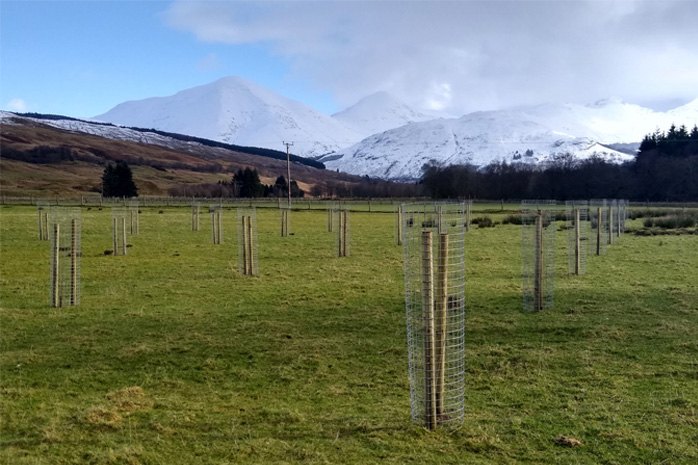
Farmers and researchers are teaming up as part of the first ever farmer-led study into the benefits of agroforestry in the UK.
The project will spend the next 12 years investigating whether the practice is a viable way to address the climate crises while maintaining productive farmland.
Involving seven farms in Devon, it will be the largest participatory research project to date looking at silvopasture – a practice of integrating trees and livestock.
The farmers, who produce beef, sheep, venison and dairy, are expecting the trees to bring benefits to their systems by enhancing the natural processes that underpin sustainable food production.
Research to date suggests that soil health is expected to improve, with increased soil carbon, earthworms, fungi and other indicators of soil biology.
It is also hoped to improve livestock health through providing shelter and additional nutrition, diversify income by providing extra crops of fruit, nuts and timber and boost the nutritional value of forage.
Agroforestry is recognised by researchers as contributing to a range of public goods such as carbon sequestration, increased biodiversity, water quality and flood mitigation.
But robust multi-year research on working farms has yet to be accomplished – making this project a key milestone in convincing farmers to take up the practice.
One of the farmers, Andy Gray, who rears animals for a direct sales meat box company, said: "This field lab is about building knowledge and the understanding for the wider farming community.
"By doing this we can prove to our neighbours that it works so they then have the confidence to adopt it."
Dr Lindsay Whistance, from Organic Research Centre, said the presence of trees on pasture offered benefits to livestock including shade and shelter, and medicinal benefits.
"These benefits can translate into better animal welfare and higher productivity through reduced mortality rates of youngstock and lower feed bills.
"Trees once played an integral part in livestock management and, as interest in silvopastoral systems increases year on year, this field lab offers us an opportunity to update our understanding of these benefits for different livestock in UK conditions.”
Three different planting designs are being trialled, tailored to the farm and the balance they wish to strike between open grazing and tree cover.
The research will see farmers plant a mix of twelve native tree and shrub species, including oak, downy birch, aspen, alder and willow.
The trees are chosen for their ecological associations with the local landscape, but also for the nutritional and medicinal properties they can provide to livestock.
